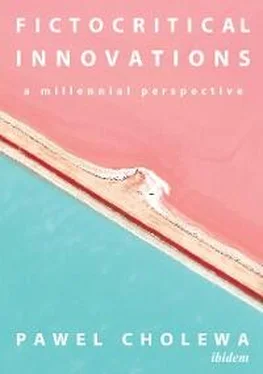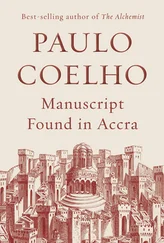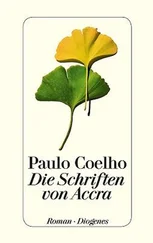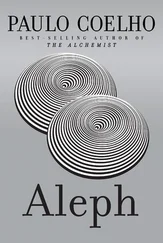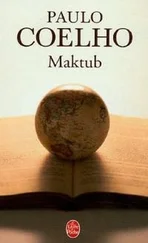Henceforth, until we (you, the reader) and ‘I’ reach the conclusion of this work, the creative self shall be methodically divorced from the analytical self.
SECTION I
FOLIO ONE: Journeys
“At Some Point Reality Needs to Become a Part Of …” (2013)
When I first moved to Rockhampton from Melbourne in the pursuit of my doctoral studies in 2013, I tried extremely hard to engage in the culture and lifestyle of a more rural part of Australia, a different part of the world to me, obviously, since I was coming from a much ‘cooler’ (both figuratively and literally) cosmopolitan city like Melbourne.
Here I was on the cusp of a great insight and discovery, and he was on the verge of divulging that unforgettable truth to me, and in his sixty-five years of wisdom and experience and rural understanding he would have finally been able to eloquently and concisely convey this epiphany in a way that was both relevant to him and to me. We could have adopted this and used it as a mantra; pseudo-intellectuals and wannabe academics would have quoted him for years, though if it just weren't for his incomprehensible state of intoxication, and the other intolerant gentleman he was with.
Bleary-eyed, inarticulate, stumbling and fumbling over words and blending, churning syllables so the dribble just ran from their throats, grunting and sighing, breathing and motioning in a vague proclamation and representation of broken ‘dialogue’.
And in between these moments of intermittent comprehension and the incoherent babbling drool of language, I sat there, eyes fixed, glued to the barstool, and listened. I listened and I sat there transfixed. I had no idea what especially I was trying to look and listen out for, but I felt that this was extremely important. This was communion, and a completely genuine integration with a new place, with a real emergence existing in a chasm within myself.
Everything I thought I heard him say, or everything I thought I heard him primordially express, or that I was perhaps projecting myself into, listening and looking through with rose-coloured glasses, was a wish and a hope to somehow hear the things I intrinsically wanted to hear. This only happened ‘yesterday’ and I'm still not sure, but the mantras and detail and relevance poured from him in torrents, like a rush of blood to my head: “You're a realist, not a purist”; “the most important thing in the world is to be able to express ourselves”, he would say, though his own voice would rise and fall as he choked, spluttered, burped and hiccupped over his own subdued and subverted sentimentality. “At some point reality needs to become a part of …” he said, and abruptly stopped before he could ever finish. And I waited for the closure of that patently grand statement that would not come, anti-climactically. But often closure does not come, we do not receive it, and some of us, like me, are left waiting, on pins and needles, for years to come, in a state of wonder, contemplating what could have been. Most likely nothing, and he probably was merely drunk, not knowing himself what he was actually saying. But you have to wonder about the potential meaning and honesty that could have been there, in that moment. I suppose often some things are better left unsaid, if only for the pure allure and mystery of the moment; that in itself, and for oneself, can become a source of prolonged marvelling and quiet solitary contemplation or re-hashing.
Maybe it’s because this moment and scene were so novel to me, and that is why it was so special. I don’t really know too much, though what I do know is that both of these men seemed intuitive (in a raw bucolic way that I hadn’t really come across before), one to the light, and the other to the dark. The other one had barely spoken, but he saw, cock-eyed though he was, the darkness in me almost instantly: “this is the kind of bloke who would shoot you in the leg and walk off!” he surmised, with a shrieking upward inflection of pitch and tone heralding out those last two words. And he was right, which frightens me, because I know I'm not exactly altruistic any more.
I'm here, this is now, it’s new, and yet it is part of something older, more mature, settled, stubborn and fixated than what I can really grasp or understand. It's subjective, but it has no context, so I have no ideas that I can really cement in anything. I'm simply meandering along in this new environment, drifting within a kind of dam until hopefully my foot can latch on to something, at which point I can start simulating and generating algae in a pool of water, a pond of my own.
These are the babbling truths and confronting conservative value systems that I need to start developing on my own, integrating with, appreciating and understanding if I'm to grow at all here from now on. The need to go off and analyse what a fool hasn’t been trying to say probably won’t serve any purpose but to further distance and isolate me from the truth I am trying so conscientiously to uncover.
And having gone off and walked, tangentially and diagonally across pathways in sober gardens, I have very little to no grounding as to what can possibly happen from this point onwards. Lost and disconnected I repeat my steps and try to adopt a humorous approach, chuckling at the same jokes and commentaries; the greenery and comedy of it all will save me as I keep pacing conservatively, never sitting mindfully, patiently or still enough to produce any grime of my own, and yet I’m infested with ‘this’ knowledge, and that I might ground myself, and refuse to take charge, in confidence.
A Daze to Come True (2014)
For I find myself just wanting to wander around, from place to place, not really doing much—ambling. If I had to choose or describe a vocation, it would be this. Observing things, not with a keen eye, or not the most important things, but merely the vague and the mundane, as they appear or as they come to me. I may turn down a street or an alleyway, into a random building, a café or a restaurant egged on by a gust of wind, a flutter that ushers me this way or that way. I don’t want to learn, to repeat history, to experience the most ecstatic, trying so hard to sap the best juice out of the best experience possible. This is exhausting. If I miss something, it doesn’t exist. If I don’t do something, it never happened. For once, I simply want the spectral gaze of my daze to come true.
A Literary Mitosis (On Form) (2014)
Why do I hyphenate and parenthesise and marginalise so much with a ‘/’ or brackets—with everything else I write coming with an ‘and/or’? Sooner or later a frustrated reader/reviewer will be driven to lecture or criticise me for this, so I will take it upon myself to beat them to the punch. I’m surprised I’ve evaded this issue for so long, particularly since it’s literally staring me in the face almost every single day in the form and format of what and how I write. I guess the most obvious criticism is that it shows a lack of control and mastery over language, an inability to decide on a word or make the right choice because, perhaps, I do not understand the full and proper connotations of every word I select and write with, and why should I? When so many words have apt and adequate synonyms and so many dictionaries define their definitions definitively, yet differently and minimally. So, I make the decision to choose both or either/or. For who am I to choose one word over another? So much of this rambling intellectualised jargon about ‘I’ and integrity and intuition and influence and (un)originality is about the inability to grasp and control everything and one’s expression, whether it is predetermined, (pre)influenced, fatalistic, prodigious, integral, philosophical, or/and so forth. So, I guess I’ve naturally or organically decided over time to use and utilise a form that looks and appears to be rigid when in fact it is loose and lucid at best. One thing says more than only one thing using these devices and interwoven formats. I want this writing to have connotations and implications and insinuations, saying more with less and expanding upon vocabulary and linguistics, using tools that shorten and sharpen and cut to ironically elaborate and engage and grasp, breaking and branching out onto or into more by making more out of clasping, fastening but also separating, distinguishing and dividing—a literary mitosis.
Читать дальше
